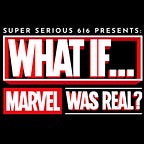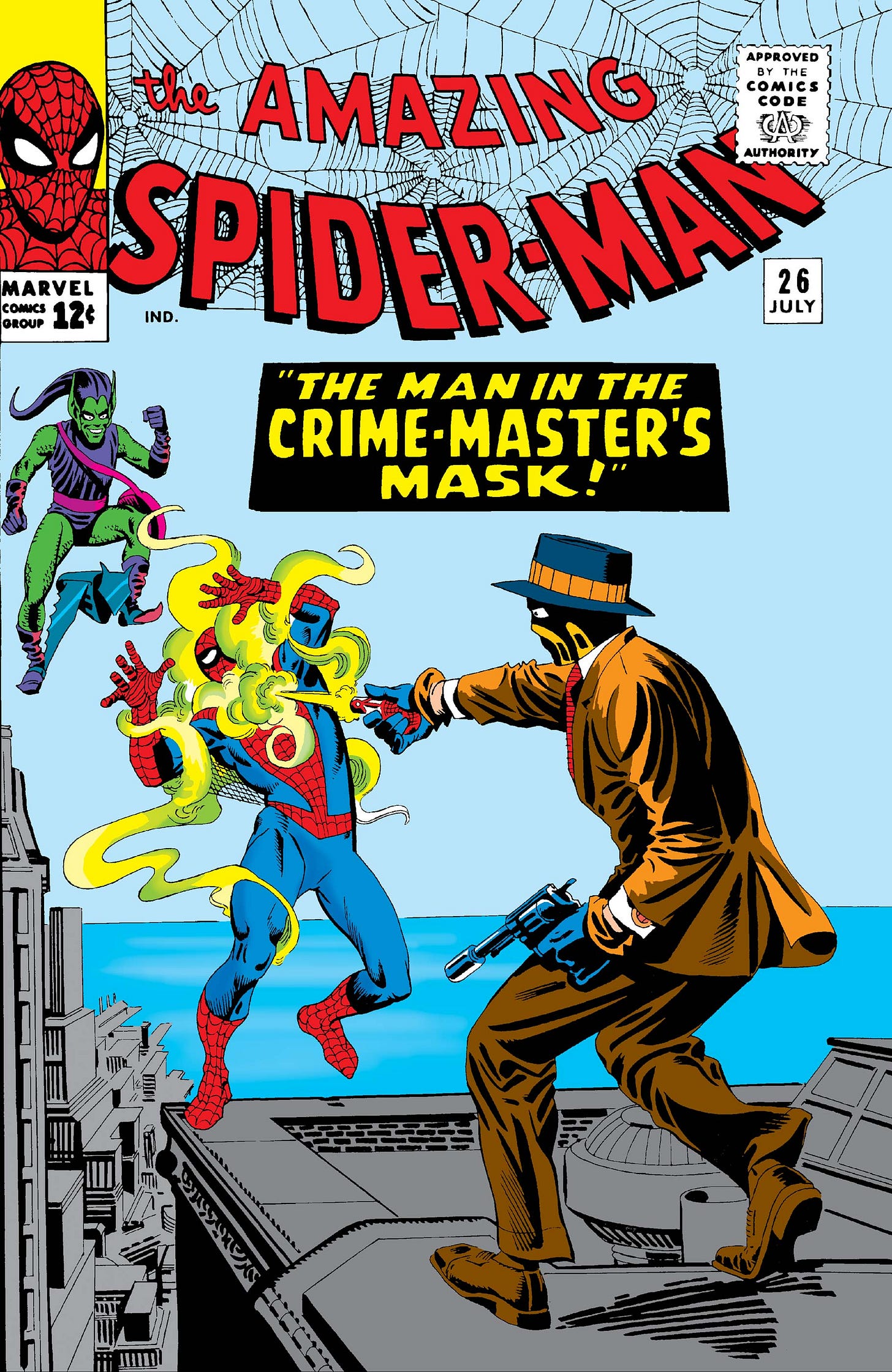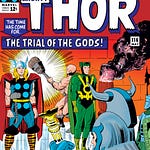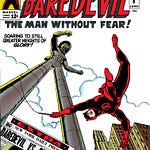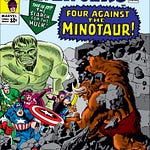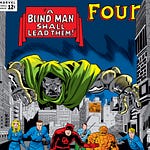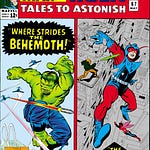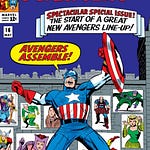In this episode:
Mike and Ed discuss how the Goblin and the Crime Master may be the same person. Also, the Green Goblin is now clearly a villain. His early work attacking crime families seems to just have been so he can consolidate organized crime under his own leadership. Ed admits his earlier errors and Mike helps Ed understand that goblins are, historically, not known for their altruism. What does it say about Mr. Fantastic?
Behind the issue:
This is the first appearance of the Crime Master (he dies in the next issue, and unlike most dead villains is never resurrected - at least as of this writing in 2023). In the issue Stan leads the reader (and Spider-man) to believe that Fredrick Foswell (formerly the Big Man, now “reformed”) is secretly The Crime Master. When it turns out that Foswell was actually on the side of good and the Crime Master’s secret identity was someone who had never been mentioned before, Spider-man says something about how “sometimes it’s just a random guy”. In the future Stan will write another reverse and Foswell will go back to being a villain, but for now he is one of the heroes of the story.
In this issue:
The Green Goblin meets up with the Crime-Master to see if he will join forces with him to take over the criminal underworld of New York City. But the Crime-Master declines. A crime cold war begins anew.
It turns out that the Crime-Master is actually Frederick Foswell, the allegedly reformed Big Man who has returned after his stint in prison to work as a newspaper reporter again for the Daily Bugle.
Anyway, Spider-Man gets caught up in the middle of this crime cold war, and the Goblin captures him. The Goblin takes an unconscious Spider-Man to a crime meeting that the Crime-Master had set up to announce that he was the leader of NYC’s criminals - but the Goblin has other plans.
This episode takes place:
Around the time of a crime cold war in New York City.
Assumed before the next episode:
People are wondering what Thor was doing in Southeast Asia - and also why costumed criminals are making a splashy play for power in New York.
Full transcript:
Edward: Uh, Mike, the green goblin, I stand corrected. Green Goblin is not a hero. He is not a good guy. He,
Michael: shocker Ed. Just a but the shocker,
Edward: so Mike, I admit when I'm wrong. I admit that even though he was doing a heroic thing, trying to take down crime families, he was not doing it for a good reason.
Michael: He wasn't altruistic.
He wasn't just like, you know what? I wanna, you know what I do? My spare time is just take down, and weaken crime families and just let them just see what happens afterwards. It turns out he was trying to take them over.
Edward: So, there's a difference whether it's the meaning behind the action that's important or the effect that's important. And if the effect was to eliminate crime, may, maybe he was, maybe he was a good guy even in spite of himself. Uh, okay. It's, it's a stretch.
Michael: That's a bit of a stretch, Eddie. Like, I mean, look, what I think is that, the last time we spoke about this, you were saying, Hey, it looks like the green goblin is a hero.
And you can't read too much into it, I guess. But if I was. Talking to you. I said, ed, going forward, I want you to refer to me as the ogre. You'd be like, you'd say Mike, like, what's going on with you? I'd say, I don't know. I just want you to, I want you to call me an ogre.
You know, believe me then there might be a problem and I might view myself negatively. And so if someone says, I'm the green goblin, you're basically saying, I am scary. I am someone to fear I'm not a hero.
Edward: En vain, probably vain or, no. Envious. Envious. Isn't it? Green with envy. Agree with envy, an envious,
Michael: there's no goblin, there no goblin in history. You're like, you know, like, I like that guy. I think, you know, I'd like to maybe hire him as a babysitter. It's a goblin. They eat children. This is what goblins are like. They have riddles and it's just, they're not good.
So they're negative.
Edward: Yeah, but we can't just, it's not just the name. Like what about Spider-Man? Spider-Man is a hero, but people don't like spiders. People are terrified of spiders.
Michael: And people don't really like Spider-Man, ed. We talked about this before about how Spider-Man isn't, we think it might be the mass, but it may very well be because he's naming himself after an insect that no one likes. Like it's just
Edward: call himself the honey beak, make honey for you.
Michael: Or maybe not do non insect related. I'm sure that you could have come up with a different costume and named himself like, I dunno, the hawk or something just jumped or whatever. Or something. But anyways, my point is that sometimes we don't really have to look that far past the name, because I think they're telling us what they think of themselves. Like we know that, say, captain America obviously thinks highly of himself and wants to in America project something. And America I bet be he cares America. America, he wants to be a representative of America. He is trying to project a positivity, right? Like Ironman is strong symbol. They're trying to act heroically, like Thor, whether Thor really is a God from Norse mythology. If he isn't and he's just a guy with crazy powers, he obviously thinks highly of himself and wants to project as a hero.
Those are things that are different than, say, the goblin who's telling us, this is who I am. You know, Thor says, I want you to think of me as this striking Norris hero. And the goblin is the opposite.
Edward: So what you're, what you're saying is we should start judging more books by their covers.
Michael: I think we gotta take it as a hint, I think it's fair to say that you look at even the Fantastic four The Thing clearly has some self-esteem issues and he does look like a rocky monster, whereas Mr. Fantastic has zero problem. He wants everyone to know how wonderful he is.
And again, he's probably, again, we've had the conversation similar to this. He probably isn't the nicest guy cuz he's, he's on the team with The Thing. He's obviously making, he's bragging about how going into space, And getting bombarded cosmic rays was awesome, Mr. Fantastic. It's amazing.
And then, and then his teammate's like, oh, I'm The Thing. It just tells us that Mr. Fantastic probably isn't that fantastic, really. But at least he thinks he is. And he's projecting as a hero.
Edward: So you're saying, so, so the go, the Goblin thinks he's a goblin.
Michael: He thinks he's a bad guy and then it turns out he was, and you heard it and you kind of twisted yourself into some, you know, some, some knots.
Edward: I'm a consequentialist Mike. At the end of the day, what happens is what matters. What happens is what matters. You got the best intentions in the world, like those communists, I'm sure they were trying to be all but love and sharing and trying to help everybody, and that the result was millions of people died Under Stalin, consequentialist, Mike, what matters is what happens, not what the intentions were.
And so the goblin had really bad intentions, but he stopped some crime.
Michael: I think he should read more books, ed?
Edward: I think so. I think so. Okay. Well, so anyway, so the situation we're at right now is that the goblin is clearly moved from, being good in a consequentialist ba basis, but being bad in intention basis, just being bad all around. He's like, they, they think they battle around. The goblin might actually be the crime master. They're the same person. If not the same person, they're definitely working together. They're trying to take out all the other criminal underworld, combine them into one, not just take them out, but just amalgamate them into one group all under the goblin and the crime master, or well, or if they're one in the same, so that's what's going on.
Clearly bad dudes. Clearly bad, but, if you're gonna use the names, a goblin isn't going to be the master of crime. The goblin is gonna be the little minion running around, but he's projecting out like master of crime now, the head of the underworld.
So he's moving past his name and maybe that's why he's changing it to the crime master.
Michael: Maybe, but it's not, again, that's not saying too, too, too, too far. I mean one name isn't supposed to explain someone's core identity. It's just that he's not good.
Edward: That's what you said point, I thought you said it all.
Not about the core identity.
Michael: No. You're saying, you're saying he's more of a minion because of his name, like No, no, he's, he's just a bad dude. I'm saying that when they tell you who they are, like say the brotherhood of evil mutants, they're probably the evil mutants. You know, if they say the Avengers, they're probably the, they're probably trying to, you know, avenge a lot.
Edward: What are they fantastic for? Think they're wonderful. What are the Avengers Avening, are they Avening? Anything in particular? Just in general?
Michael: Well, it's a positive message.

